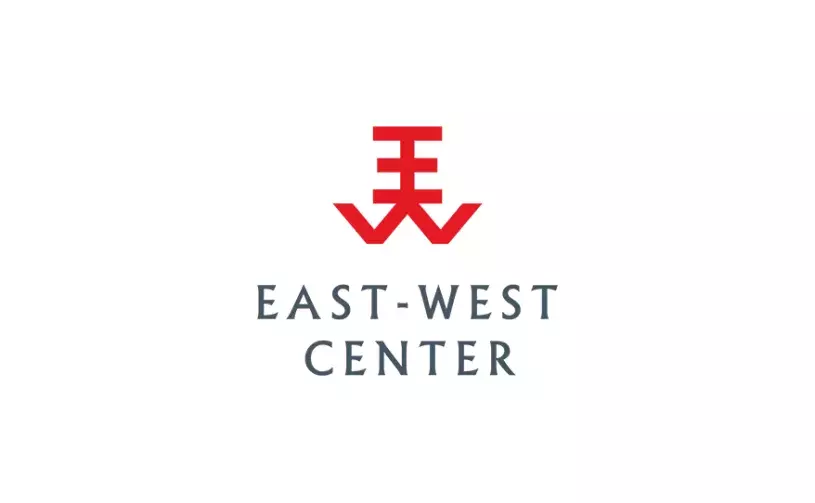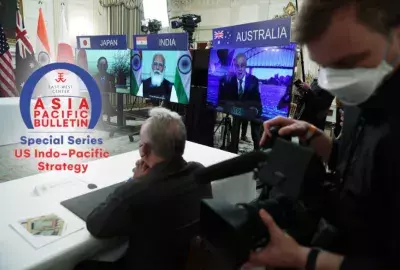Error message

|
Dina Poma-Barnes former East-West Center Asia-Pacific Leadership Program Fellow, explains that “Despite the bilateral agreement to significantly decrease US military forces on Okinawa, the base relocation was strongly opposed by the previous two Okinawan governors and many other locally elected politicians.” |
On September 30, 2018, Denny Tamaki, the son of an Okinawan woman and estranged US Marine, won the Okinawa gubernatorial race. Tamaki ran on the same anti-base expansion platform as his predecessor, the deceased Governor Takeshi Onaga. This election made global headlines because it was center stage to the tumultuous triad relationship between the United States, the central government of Japan, and the prefectural administration of Okinawa. The “strategic interests versus domestic affairs” conflict is enhanced due Okinawa’s prime location in proximity to the disputed Senkaku Islands. A David and Goliath scenario, Okinawa must battle two Goliaths in order to get what it wants, which is a smaller US military footprint on its land, and a shift of burden-sharing (i.e. US base locations) to mainland Japan. Okinawa has about half of the 50,000 American service-members in Japan (this number does not reflect the additional family members, US government support personnel, and US contractors), and 25 percent of the area used by the US military in Japan. In exchange for this land use, the United States guarantees Japan’s (including Okinawa’s) security.
The gubernatorial race’s main platform ran on the recurring tension that has dominated headlines, been the subject-matter for numerous Congressional hearings, and the rallying cry for opposition-backed politicians—the relocation of Marine Corps Air Station (MCAS) Futemna to Henoko. The current air station is located in a densely populated area. The central government of Japan and US defense forces agreed to move the air station to a less populated area in the northern part of Okinawa no earlier than 2022. There are significant opposition forces — to include the newly elected Governor Tamaki — which oppose this move and are demanding that mainland Japan take a larger portion of the US military forces. A relocation plan was formed in 2013 that not only called for the new base to be built in Henoko, but also for 9,000 Marines and their dependents to be transferred from Okinawa to locations outside of Japan (Guam, Australia, Hawaii, and the continental United States). Despite the bilateral agreement to significantly decrease US military forces on Okinawa, the base relocation was strongly opposed by the previous two Okinawan governors and many other locally elected politicians. Previous Governor Onaga filed two lawsuits against the land reclamation in Henoko, thus stalling the construction process for the new base. Newly elected Governor Tamaki has vowed to disapprove the land approval for the construction site, thus stalling the building process even longer. In these cases, “David” has used the legal system to stymie “Goliath’s” progress on a US-Japan Alliance decision made in the absence of ‘David’s’ views and sentients being considered.
Sovereignty and cultural tensions between mainland Japan and the Okinawan prefecture form an undercurrent of distrust and indifference. Additionally, the US military controlled the island for 27 years after a bloody battle killed close to 50,000 American military, 110,000 Japanese military, and an astounding 140,000 Okinawa civilians. This legacy is still felt today. To have more depth of today’s political issues, a bit of history must be understood.
The Okinawa archipelago has endured two major occupations by foreign powers — those of imperial Japan and the United States. Okinawa was once the island kingdom of Ryukyus, which was rich in tradition, national sovereignty, customs, and had strong trade and cultural links to China. This once-autonomous island nation would become colonized by the imperial kingdom of Japan in 1878. For an ancient and homogeneous culture such as Japan, the acquisition of the Ryukyus is still recent, and the people of Okinawa, though Japanese by citizenship, are viewed as outsiders. This in fact can be seen in the modern-day treatment of Okinawa, the poorest of Japan’s prefectures. This outsider status is ubiquitously felt by Okinawans and commonly voiced in contemporary political dialogue.
Additionally, Okinawa was under US military control after World War II, from 1945-1972. During the post-conflict reconstruction years many of the current US bases were built — according to the Okinawan viewpoint — from land that was confiscated after the war. The Japanese government pays nearly $2 billion per year to Okinawa to offset the cost of stationing US forces there. It is a key security interest that the US forces stay in Japan due to the security landscape of China continually expanding its boundaries in the Indo-Pacific.
However, the most poignant and cataclysmic event that resulted in the anti-base movement and land reclamation movement is the 1995 rape of an Okinawan girl. Recent media reports comment that the base relocation was a plea deal of sorts between the US and Japanese governments. In 1995 US service-members were convicted of raping an Okinawan girl; in response, the US promised to move MCAS Futemna. It took over 10 years for the US-Japan Alliance to decide where to relocate the air station. The “only possible solution,” as officially stated by both US and Japanese governments, is a coastal area adjacent to a current base on the northern part of the island. This decision has been a subject of controversy since its inception. More recently surrounding the gubernatorial election, protests of various sizes have ensued, and range from a few dozen people to a reported 70,000 people.
CONCLUSION:
Denny Tamaki, the anti-base candidate, won the recent gubernatorial election. Okinawan anti-base opposition views have been well documented: no more US bases. The official US-Japan Alliance position is also very clear, for the betterment of both nations’ security and well-being, MCAS Futemna will be relocated on the island of Okinawa — it is the only viable solution. But where does the US military stand on this issue? And what is its perspective on the latest gubernatorial election? After all, it is the American military that is front and center on these controversial issues. The answer is simple and a bit boring: neutrality. Common sense leans towards the US military wanting a more pro-US base candidate, naturally. In regards to the MCAS Futemna base relocation, local and prefectural politics serve as more of a thorn in the side regarding US national interests and security in the theatre. Negotiations are made in Tokyo and Washington, DC — not Naha. Land-use, sharing of resources, community relations, and the economic ties that link the US military forces stationed on Okinawa and the local government will continue, as will the protests outside of Camp Schwab and Kaneda Airbase, as will the vociferous demands of a newly elected anti-base-expansion governor. Life goes on as normal despite the outcome of the Okinawa gubernatorial election. In fact, a large majority of US servicemembers didn’t even know there was an election. Their mission is operational and consists of training exercises, building and maintaining US relationships with our allies and partners, crisis response, and — most notably — deterrence. The US military is a-political, both domestically and abroad. Regardless of the political landscape, they will stay strategically focused on protecting US national interests in the region.
|
Dina Poma-Barnes former East-West Center Asia-Pacific Leadership Program Fellow, explains that “Despite the bilateral agreement to significantly decrease US military forces on Okinawa, the base relocation was strongly opposed by the previous two Okinawan governors and many other locally elected politicians.” |
On September 30, 2018, Denny Tamaki, the son of an Okinawan woman and estranged US Marine, won the Okinawa gubernatorial race. Tamaki ran on the same anti-base expansion platform as his predecessor, the deceased Governor Takeshi Onaga. This election made global headlines because it was center stage to the tumultuous triad relationship between the United States, the central government of Japan, and the prefectural administration of Okinawa. The “strategic interests versus domestic affairs” conflict is enhanced due Okinawa’s prime location in proximity to the disputed Senkaku Islands. A David and Goliath scenario, Okinawa must battle two Goliaths in order to get what it wants, which is a smaller US military footprint on its land, and a shift of burden-sharing (i.e. US base locations) to mainland Japan. Okinawa has about half of the 50,000 American service-members in Japan (this number does not reflect the additional family members, US government support personnel, and US contractors), and 25 percent of the area used by the US military in Japan. In exchange for this land use, the United States guarantees Japan’s (including Okinawa’s) security.
The gubernatorial race’s main platform ran on the recurring tension that has dominated headlines, been the subject-matter for numerous Congressional hearings, and the rallying cry for opposition-backed politicians—the relocation of Marine Corps Air Station (MCAS) Futemna to Henoko. The current air station is located in a densely populated area. The central government of Japan and US defense forces agreed to move the air station to a less populated area in the northern part of Okinawa no earlier than 2022. There are significant opposition forces — to include the newly elected Governor Tamaki — which oppose this move and are demanding that mainland Japan take a larger portion of the US military forces. A relocation plan was formed in 2013 that not only called for the new base to be built in Henoko, but also for 9,000 Marines and their dependents to be transferred from Okinawa to locations outside of Japan (Guam, Australia, Hawaii, and the continental United States). Despite the bilateral agreement to significantly decrease US military forces on Okinawa, the base relocation was strongly opposed by the previous two Okinawan governors and many other locally elected politicians. Previous Governor Onaga filed two lawsuits against the land reclamation in Henoko, thus stalling the construction process for the new base. Newly elected Governor Tamaki has vowed to disapprove the land approval for the construction site, thus stalling the building process even longer. In these cases, “David” has used the legal system to stymie “Goliath’s” progress on a US-Japan Alliance decision made in the absence of ‘David’s’ views and sentients being considered.
Sovereignty and cultural tensions between mainland Japan and the Okinawan prefecture form an undercurrent of distrust and indifference. Additionally, the US military controlled the island for 27 years after a bloody battle killed close to 50,000 American military, 110,000 Japanese military, and an astounding 140,000 Okinawa civilians. This legacy is still felt today. To have more depth of today’s political issues, a bit of history must be understood.
The Okinawa archipelago has endured two major occupations by foreign powers — those of imperial Japan and the United States. Okinawa was once the island kingdom of Ryukyus, which was rich in tradition, national sovereignty, customs, and had strong trade and cultural links to China. This once-autonomous island nation would become colonized by the imperial kingdom of Japan in 1878. For an ancient and homogeneous culture such as Japan, the acquisition of the Ryukyus is still recent, and the people of Okinawa, though Japanese by citizenship, are viewed as outsiders. This in fact can be seen in the modern-day treatment of Okinawa, the poorest of Japan’s prefectures. This outsider status is ubiquitously felt by Okinawans and commonly voiced in contemporary political dialogue.
Additionally, Okinawa was under US military control after World War II, from 1945-1972. During the post-conflict reconstruction years many of the current US bases were built — according to the Okinawan viewpoint — from land that was confiscated after the war. The Japanese government pays nearly $2 billion per year to Okinawa to offset the cost of stationing US forces there. It is a key security interest that the US forces stay in Japan due to the security landscape of China continually expanding its boundaries in the Indo-Pacific.
However, the most poignant and cataclysmic event that resulted in the anti-base movement and land reclamation movement is the 1995 rape of an Okinawan girl. Recent media reports comment that the base relocation was a plea deal of sorts between the US and Japanese governments. In 1995 US service-members were convicted of raping an Okinawan girl; in response, the US promised to move MCAS Futemna. It took over 10 years for the US-Japan Alliance to decide where to relocate the air station. The “only possible solution,” as officially stated by both US and Japanese governments, is a coastal area adjacent to a current base on the northern part of the island. This decision has been a subject of controversy since its inception. More recently surrounding the gubernatorial election, protests of various sizes have ensued, and range from a few dozen people to a reported 70,000 people.
CONCLUSION:
Denny Tamaki, the anti-base candidate, won the recent gubernatorial election. Okinawan anti-base opposition views have been well documented: no more US bases. The official US-Japan Alliance position is also very clear, for the betterment of both nations’ security and well-being, MCAS Futemna will be relocated on the island of Okinawa — it is the only viable solution. But where does the US military stand on this issue? And what is its perspective on the latest gubernatorial election? After all, it is the American military that is front and center on these controversial issues. The answer is simple and a bit boring: neutrality. Common sense leans towards the US military wanting a more pro-US base candidate, naturally. In regards to the MCAS Futemna base relocation, local and prefectural politics serve as more of a thorn in the side regarding US national interests and security in the theatre. Negotiations are made in Tokyo and Washington, DC — not Naha. Land-use, sharing of resources, community relations, and the economic ties that link the US military forces stationed on Okinawa and the local government will continue, as will the protests outside of Camp Schwab and Kaneda Airbase, as will the vociferous demands of a newly elected anti-base-expansion governor. Life goes on as normal despite the outcome of the Okinawa gubernatorial election. In fact, a large majority of US servicemembers didn’t even know there was an election. Their mission is operational and consists of training exercises, building and maintaining US relationships with our allies and partners, crisis response, and — most notably — deterrence. The US military is a-political, both domestically and abroad. Regardless of the political landscape, they will stay strategically focused on protecting US national interests in the region.







